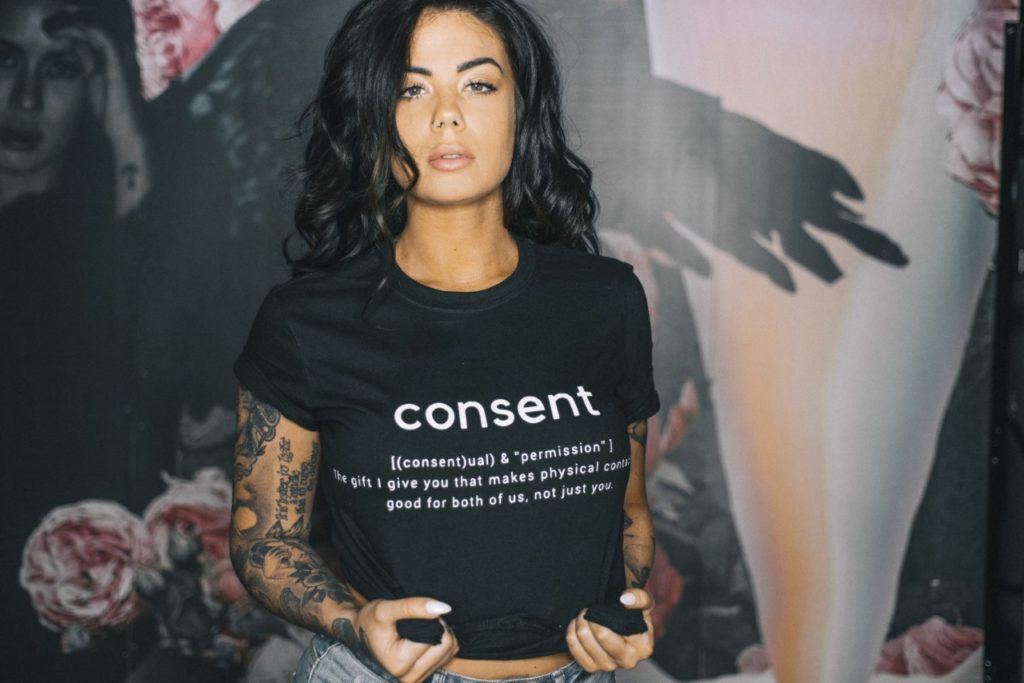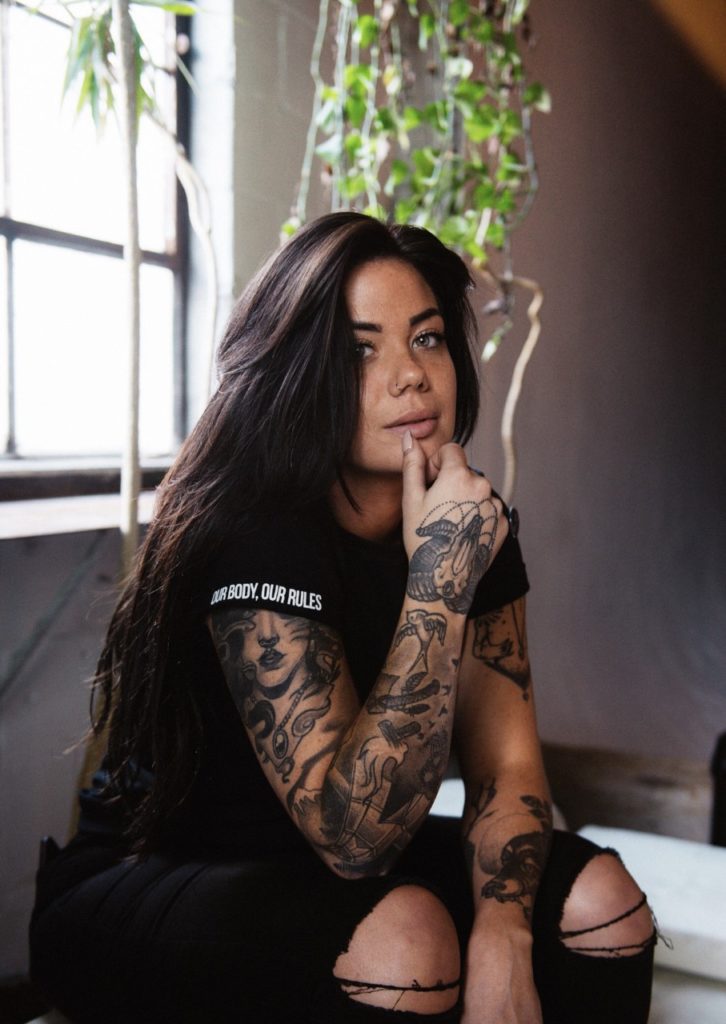
Jennifer Kozak |
Healing is not linear. It takes time, authenticity, patience, and being kind to yourself.
Does that mean that an individual should not date until they are completely healed? No. Of course not.
Human beings deserve to be loved in a way that is honest, safe, and respected.
Unfortunately, acts of violence against women have been happening globally for generations.
While both men and women experience sexual or abusive trauma, Statistics Canada indicates that women and young girls experience it at a higher rate.
According to a gender-based violence study done by Statistics Canada, of all sexual assault incidents, 47 per cent were committed against girls and women aged 15-24.
Surviving trauma may hinder you from finding a new partner as you try to re-enter the dating world.
With the help of Carmila Ray, celebrity matchmaker and winner of iDate award for the best dating coach in 2018 and Laura Hesp, the creator of Inclusive Love, here are five tips that may help you, or a friend, or your new partner.
CLEAN SLATE
Understanding that it was not your fault and learning to accept it can take time.
“Forgive yourself and accept the things you did and did not do. Take a step outside the situation, and look to see what lessons can be learned,” says Ray.
Victims of trauma often carry regret, humiliation, anger and shame; “Take those feelings, and whatever does not empower you and leave it in the past.
From right now, this minute, from every moment moving forward, if you were to meet someone new, they get to experience the person that you choose,” she says.

trauma and healing. [Credit: Laura Hesp]
Ray adds that victims don’t need to blame themselves.
“Do not assume that your relationships are going to be like your past one. Carrying that same trauma into your new relationship can be harmful to both people,” she says.
“It would be best if you were in a good place emotionally, mentally, and physically. Give yourself that opportunity to connect with this new person.”
When starting to date again, understand that you and your partner both come with baggage.
As humans, we often bring a false self to a new relationship, and you both are trying to act a certain way to be loveable or acceptable.
“It is usually called the honeymoon stage. Then, all of a sudden, when real shit starts coming up, you see the way they are with their family, the way they act when they’re upset,” Hesp says.
“You have to have those uncomfortable conversations with your partner in the beginning. It is all about honesty and communication.”
TELL A LOVED ONE
Sharing with friends and family that you have experienced trauma of any kind, can be nerve-wracking.
Hesp created her organization to focus on self-love, trauma and healing.
She offers workshops, one-on-one counselling and daily advice on her social media platform on family trauma, self-awareness, mental health, and being authentic with yourself.
She is a firm believer in people speaking their truth and knowing how valuable they are.
Hesp encourages those who are ready to share to first seek permission.
“When we have personal information that’s difficult to share, we are looking for validation and love. We want to so badly go to our siblings, parents, or whoever to get that love,” Hesp says.
However, while she recognizes the importance of sharing with those closest to us, Hesp urges people to think carefully before proceeding.
“If in the past they have shown patterns that they are not able to love or validate you, sometimes telling those people can become harmful to you in making you feel invalidated about your experience,” she says.

trauma and healing. [Credit: Laura Hesp]
If you are someone who is in this predicament, there are resources out there for you.
There are helplines, community resources, online help or books. There is no limit to the number of resources available to those seeking help.
Ray also recommends going to a teacher, friend’s mom, friend, mentor, or anybody you trust.
If your loved ones are supportive and you have a trusting relationship, Hesp recommends starting the conversation by asking this question: “I want to have an uncomfortable conversation with you. Are you open to hearing about what has been going on in my life?”
You can formulate this question in a way that best suits you. This lets that person be in the right headspace to receive your sensitive information, as well as giving you the appropriate responses.
When the time is right for you to tell those you love about your trauma, it will help them equip themselves with skills to care for you.
BUILD A SUPPORT SYSTEM
Your partner is not your therapist.
It is a wonderful feeling to go to our partners for support when things get tough; but once you start to become co-dependent on your partner and they become your emotional caretakers, it can become a lot for that one person to take on.
Hesp and her boyfriend, both have support systems outside of each other.
She and Ray recommend therapy, reading books, local community resources, helplines, employee resources, and online advice from experts.

trauma and healing. [Credit: Laura Hesp]
Gwendolyn Rafael, a 24-year-old aspiring flight attendant and survivor of trauma, says, “Church was my therapy. My pastor and church friends are my go-to people when I need advice or support. My pastor has written self-help books that helped my healing.” Rafael adds,
“Self-help podcasts and the book The Subtle Art of Not Giving a F*ck by Mark Manson became a support system for me.”
Do not underestimate where your healing places can be.
Inclusive Love believes that “Community is an important aspect of healing. Being able to share lessons we learned with others allows us to embed the information and practices in our minds truly.”
A link to Season 1, Episode 7 of Laura Hesp’s podcast How to Reclaim Your Body After Sexual Abuse can be found above.
TRUST YOUR GUT
Red flags in your new partner are not going to lead to a healthy and loving relationship.
Pay attention to the way your partner treats you.
Some red flags that you may want to take note of include a lack of communication, abuse of any kind, manipulation, co-dependency, controlling behaviour, the silent treatment, or isolation.
“Recognize the signs when your partner is abusing your mental health. Having a healthy mental state is vital, and when someone uses it against you or dismisses it, it can make you feel undervalued,” Hesp says.
Relationships are not perfect; there will be arguments and disagreements.
If you are feeling unsafe, it is time to leave. Sometimes in relationships, people minimize toxic behaviour because you are committed to giving that individual a chance.
It is okay to say no to a relationship. It is okay to spot red flags early on and leave.
If you notice signs of behaviour that indicate a red flag but need help leaving, contact your mentor, a friend, parent, teacher, the police, a helpline or anybody you trust.
Remember, your safety and well-being is a priority.
BE TRANSPARENT
As you start trusting your new partner, being transparent about your trauma will offer understanding to your partner about who you are.
Being transparent will allow your partner to equip themselves with the right tools to help you and also help themselves in understanding your situation.
“Being transparent about your situation and healing can allow that new person to decide, should I enter a relationship where I am aware that this person is dealing with this issue,” Ray says.
“Often hiding past trauma could lead to fears and concerns that may impact your current relationship.”
Rafael, now in a new relationship, can be honest with her partner when she is triggered.
“He can recognize when I am being triggered, and takes a step back to let me breathe. After taking some time, I come back and tell him why that upset or triggered me,” she says.
Being transparent in your new relationship will take time, but it will lead to a more honest, open and healthy relationship.
Bruises may heal, but the lasting emotional abuse takes longer to recover from; it is essential to take time to heal before re-entering the dating world.
It is also crucial to understand that nobody’s recovery is linear and you should be kind and patient with yourself.
You deserve to be loved in a way that you feel safe, heard, wanted, valued and have a healthy relationship.
The healing process will take time, but having a strong support network can lead to positive healing, sharing your story with others and advocating for those who are survivors of trauma.
| If you or a friend that you know may be in an abusive relationship or household, someone who may be experiencing any trauma, call for help: |
| Free 24/7 crisis text line- Text Home to 686868 Assaulted women’s helpline: 416-838-0511 |
| @Inclusivelove and @laurahesp offer online advice in regards to family trauma, sexual trauma, boundaries, authenticity, mental abuse, and health |
| Toronto rape crisis center– 24-hour crisis line: 416-597-8808 |
| Covenant House: 416-598-4898 |
| LGBTQQIP2SAA Youth Line: 647-694-4275 |
| Victim services Toronto 24 hours: 416-808-7066 |
| Distress Center of Toronto: 416-408-4357 If you or someone you know who may be experiencing suicidal thoughts, please tell an adult whom you can trust to help. |